featured
All That Is In The Heavens [Part 18]: Abuzaid’s Tale
Rahman’s life is saved. Ammar Abuzaid tells his story, and it’s more shocking than Rahman ever imagined.
Published
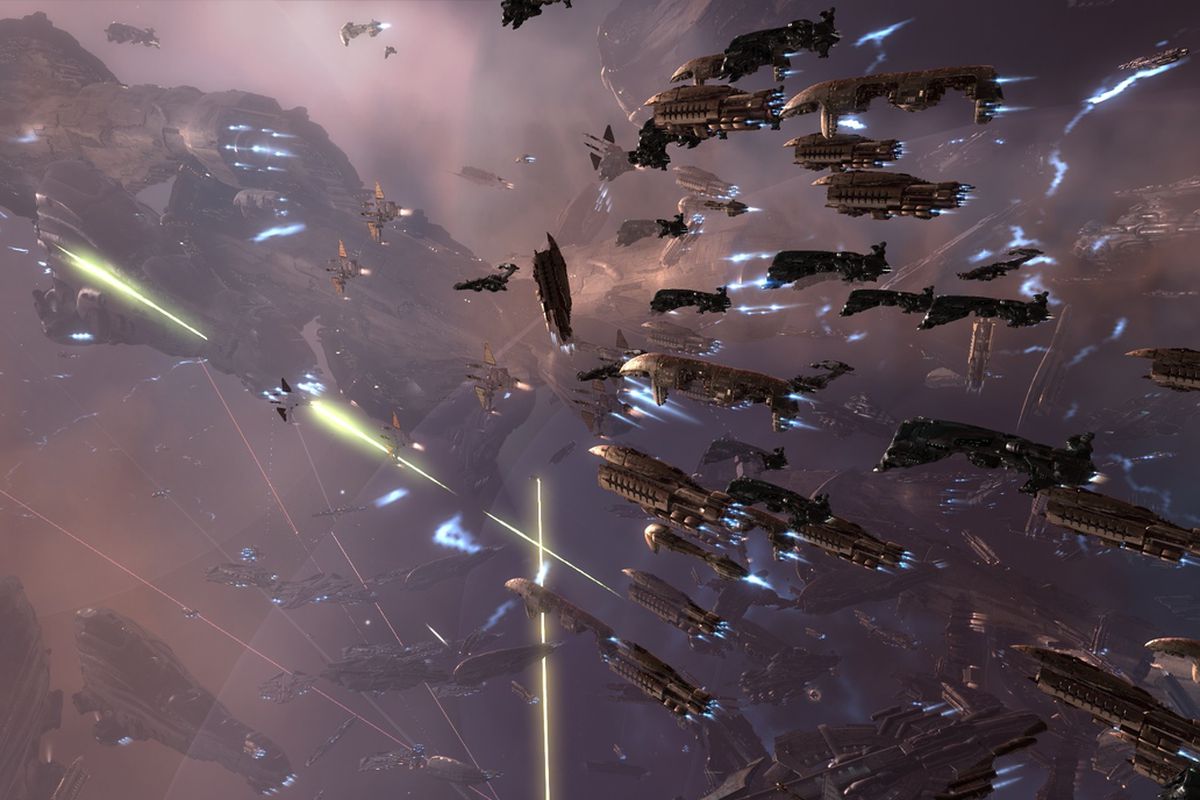
aaofeuRahman’s life is saved. Ammar Abuzaid tells his story, and it’s more shocking than Rahman ever imagined.
See the Story Index for Wael Abdelgawad’s other stories.
This is a multi-chapter novel. Previous Chapters: Chapter 1 | 2 | 3| 4 | 5 | 6 | 7 | 8 | 9 | 10 | 11 | 12 | 13 | 14 | 15 | 16 | 17
Keep supporting MuslimMatters for the sake of Allah
Alhamdulillah, we're at over 850 supporters. Help us get to 900 supporters this month. All it takes is a small gift from a reader like you to keep us going, for just $2 / month.
The Prophet (SAW) has taught us the best of deeds are those that done consistently, even if they are small. Click here to support MuslimMatters with a monthly donation of $2 per month. Set it and collect blessings from Allah (swt) for the khayr you're supporting without thinking about it.
LOCATION: PERSEUS ARM OF THE MILKY WAY GALAXY
YEAR: 4097 HIJRI – 565 UNITED ARMY CALENDAR
United Army Squad 3690 of the UA Starburst, in order of rank:
- Yasin “Cutter” Rahman – Captain. Combat strategy master.
- Weili Menco Zhang – Corporal. Xeno-geographer. Calm and cool in battle. Carries a lasgun and a tekpi (trident).
- Ammar Abuzaid – Master Sergeant. Botanist and combat trainer. Oldest member of the squad. Quran hafedh.
- Bilal Mustafa – Fleet Officer. Xenobiologist, married to Rowaida.
- Rowaida Ali – Fleet Officer. Ship’s pilot, mechanic and fabricator, married to Bilal.
- Samir “Smasher” Sufyan – Specialist. Drone tech and explosives expert. Carries an ax. Multiple awards for valor, but also repeated misconduct violations.
- Ami Abdulghaffar – Specialist. Medic and psychotherapist.
- Amina Quraishi – Private First Class. Computer tech and AI diagnostics. Hijabi. Silat expert. Fearless.
- Hisham – Private. Grenadier, plus supplies & requisitions.
- Summer – Private. Riflecarrier and food services.
- Tarek – Private. Riflecarrier and janitorial. 18 years old.
* * *
Excerpt from The Life and Death of Yasin Rahman, By Dr. Ami Abdulghaffar:
Yasin Rahman spoke Malay and Persean Standard fluently, as did all of us soldiers who came from NewMalaysia and its attendant moon settlements and space colonies. He also spoke Arabic, which he learned from his father. And strangely enough, at some point he gained the ability to write binary code by hand.
* * *
Code 3

How odd to hear Sayana using a NewMalaysian curse word. She wasn’t NewMalaysian. She was programmed by some tech back on UA Alpha, or on one of the massive space-based shipbuilding stations.
Rahman did not waste further time considering this, nor did he bother saying, I told you, I will never allow you to possess me. He had only a few seconds before he lost consciousness forever. If he could only gather enough strength to reach up and tap his i-link, he could call for help. But no, he could not move a finger.
Wait… the i-link. The i-link was open! A soldier could always tell when his or her i-link was open, because it gave a faint sensation, like a susurration that existed in one’s imagination, or a vibration so slight you weren’t even sure it was there. That was what Rahman felt now. That bit of energy that he’d sent toward the i-link had opened it.
He could not speak out loud, so he subvocalized: “Abuzaid, code 3, my quarters.”
Code 3 meant soldier down, come at maximum speed. Rahman did not know if the message had gone through, or if it had, whether it would be audible. His vision went black, and all sensation of the physical world vanished. He felt his bladder release involuntarily, even as Sayana continued to shriek from inside him: “Boss, you didn’t have to do this. Booooooooossssss!”
Three Questions
The room was dark, but soon a soft yellow glow began to fill the space. Rahman sat up. The walls fell away, and he saw that he sat in a shallow depression in the ground. Around him, a lovely savannah rolled into the distance, with tall grass, flowered hillsides, and magnificent stands of trees. The air was sweet and crisp.

“Yasin ibn Abdussamad ibn Ismail Rahman,” the blue-robed man said in a powerful, rumbling voice. “Welcome, good soul. You are an interesting man. But before anything else, tell me, who is your Lord?”
Rahman liked this man. In spite of his obvious power, there was something deeply pure about him. His companion with the hammer, however, watched Rahman as a hungry falcon would watch a rabbit, and this made him nervous.
“Allah 

The blue-robed man gestured to Rahman to stop talking. “Hush. You’re not helping yourself with all that extra stuff. Tell me though, what is your religion?”
Rahman looked at the man quizzically, and glanced sidelong at the brother in black, who still carried the humongous hammer and the vicious whip, and who had not spoken a word, but exuded an air of menace. “Islam, obviously. Like everyone from my home world.”
The man in white rolled his eyes. “You really should stick with the simple answers. One more question. Who is your Prophet?”
Rahman smiled. “The Prophet Muhammad. Peace be upon him. Actually I’ve been meaning to ask Abuzaid to teach me more about the Prophet’s life, because I don’t know enough, and I feel like knowing the details of his life might -”
The blue-robed man dabbed a bit of perfume on Rahman’s forehead, and such a warmth came from the touch of the man’s finger that Rahman sighed in pleasure. The man began to unfold the white cloth then stopped, tipping his head to one side. Then he grinned, and it was as if a second sun had risen in the sky.
“Seems we are early,” the man said. “See you next time. Remember what I said. Keep it simple.” With one finger he pushed on Rahman’s forehead. Rahman tumbled back into the hole, gasped, and opened his eyes.
Medibot
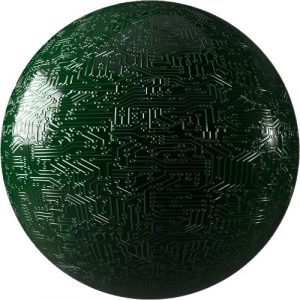
Rahman had seen these spheres in various places, plugged into charge ports on the corridor walls. He’d imagined them to be device chargers of some kind, or maybe related to fire suppression or crowd monitoring.
Abuzaid kneeled beside him, wide-eyed. “Rahman? Can you hear me? Are you awake?”
Rahman removed the mask from his face. “I’m fine, except for this monstrosity squatting on top of me. What is it?”
Abuzaid laughed. With his gravelly voice it sounded like stones rolling along a riverbed. “You really scared me, Cap. It’s a new thing. A battlefield medibot. You just toss it at a wounded man, and it lands on its feet and goes to work. Warping good, too. Put the lamb right in the net. Except they only have them on highliners for now. Go figure.”
Abuzaid addressed the sphere: “Medibot, status?”
The sphere spoke in a nasal, slightly robotic tone: “The patient is in excellent physical condition. There is no medical reason why his heart should have stopped. He is as strong as a box.”
“You mean ox.”
“Whatever.” The sphere withdrew both of its arms, removing the needle from Rahman’s chest.
“So…” Abuzaid said. “Should I take him to the autodoc?”
“What do you think I am?” the medibot countered. “A rotten mango? I told you, he is fine. Take me back to my station.” The bot stepped over Rahman, withdrew its arms and legs into its body, and returned to being an inert sphere.
Simple Biology
Rahman felt the cool dampness around his crotch, and smelled his own stink. He remembered that he’d wet himself. He was only slightly embarrassed. He’d seen this many times on the battlefield, and much worse. It was simple biology. He pushed himself up on the floor. It took a surprising amount of effort. His entire body was sore, as if he’d just run a marathon. But of course, he had. He remembered the nightmarish moment in which he’d awakened to find himself running hysterically in place, sweat pouring from his limbs, and someone else in control of his body. For the hundredth time he told himself that this situation could not continue.
“I need to shower.”

“Hey,” he called out, making himself heard above the cascade of the shower. “I had the funniest dream just now.” He proceeded to relate the dream of the two men, one in blue and one in black, who had come to him.
Done showering, he dressed in his UA uniform and emerged to find Abuzaid sitting cross legged on the floor, looking grim. Rahman sat facing him.
Not A Dream
“That was not a dream,” Abuzaid said seriously. “Those were Munkar and Nakeer, the angels of the grave, who came to you in death.”
Rahman didn’t know how to respond to that. He wasn’t sure he believed it, and if he did, well… what? “I wasn’t dead,” he said. Which of course was a lie. He remembered quite clearly stopping his own heart. But he could not admit that to Abuzaid.
Abuzaid tapped the sphere that lay on the floor beside them. “Medibot? Was he dead?”
“I am not a Johnny in a bottle,” the medibot complained.
“Genie.”
“Whatever. Based on blood oxygenation levels, commencement of cell death, and very slight algor mortis, the patient was dead for approximately two minutes before I revived him.”
“You were dead,” Abuzaid repeated. “Yet you bear no signs of injury. Something very strange is happening, and I want to know what.”
Rahman looked away. “Can I ask you something?”
“What?”
“You never told me why you joined the UA.”
Abuzaid sighed. “Yes, I told you. Don’t pass the ball.”
“No. I asked you once why you were only a Master Sergeant after years in the UA, and you told me that you weren’t drafted, you’d joined voluntarily at the age of thirty. And I asked why any sane human being would do that, and you said your life had hit rock bottom and you needed a change.”
“Like I said.”
“So… Rock bottom how?”
Heavy Objects
The older man gazed steadily at Rahman, then said, “Do you know who Ali ibn Abi Talib was?”
“Of course. The, uhh, nephew of the Prophet 
“Cousin, not nephew. And yes, he was a great warrior, and he also married the Prophet’s 














“No. It’s fascinating stuff, though.” Which was true. As a military commander schooled in war history, he found such stories captivating.
“I’m talking about you, back on the queenship, when you picked up that crab door and used it as a shield.”
Rahman frowned. “It wasn’t that heavy.”
“I saw Smasher try to pick it up, and he couldn’t budge it. Smasher is stronger than a Tellian water buffalo. What material do crab ships use for internal hatches?”
“Same as they use for external hatches, in case of a breach. Titanium.”
“Cap. That door had to have weighed three hundred pounds or more. And you lifted it with one hand like it was nothing, while carrying Maryam Munir over your shoulder with your other hand. That was not humanly possible.”
“Astaghfirullah. Are you comparing me to Ali 
Not A Footbowl
Abuzaid sat back against the wall. “Maybe. And no, I’m certainly not comparing your character to Ali’s 

Rahman swallowed and stroked the handle of his nano-knife, as he often did when nervous. “I can’t tell you.”
“Not good enough.”
Rahman wanted to tell Abuzaid everything. But if he talked about Sayana and the word got out, who knew what the UA would do? They might think he was crazy and kick him out of the army, in which case he’d finally be free of all this. But they might also believe him and want to study him. Maybe lock him up for observation. Maybe even dissect his brain. He couldn’t risk it. And as for the dirty job the UA had given him, he could never talk about that.
Frustrated, he lashed out a foot and kicked the medibot.
“Hey!” the medibot squealed, and launched itself into the air.
Rahman sat blinking in surprise. He hadn’t know the medibot could fly. Even the fact that it had legs was surprising. This was skirting awfully close to a violation of the Nippon Code, which stated that no human could build, possess or work with a mobile AI. Any true AI must be stationary. It could not have a body with arms and legs, whether human or otherwise. It could not move around independently. Violation of the Nippon Code was punishable by death on all human worlds. This was the only way to prevent a recurrence of the AI wars that had almost wiped out humanity two thousand years ago.
The medibot buzzed in circles beneath the ceiling. “I am a highly trained machine, not a footbowl! Open the door and let me out!”
“Open door,” Rahman said, and the door slid open.
With a parting cry of, “Jerks!” the medibot sped away.
“Sensitive little guy,” Abuzaid remarked.
“How does that not violate the Nippon Code?”
Abuzaid waved a hand in a shushing motion, and pointed around the room, then to his ear. “The brass knows what they’re doing. It’s a dumb little machine, not smart enough to be an AI.”
Paper Books
“Tell me why you joined the UA. Come on Ammar, who would join this thing voluntarily? That’s crazy. Every other soldier in this mess was drafted, but you signed up?”
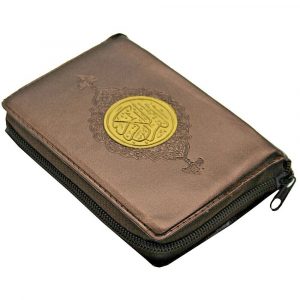
“I used to have a dozen books, you know. Back on the Starburst. All gone now.”
“They must have cost a fortune.” It had always astounded Rahman that Abuzaid had so many paper books.
“All my salary for years and years. I had a Quran with commentary, Seerat ibn Ishaq, two war history books, Death on the Wing by Hanif bin Hassan – he was the first unified president of NewMalaysia, you know – the collected poems of Salima Binti Hisham, and a couple of fictional novels. I even had a translation of a novel from Old Earth. A science fiction novel by a man named Wolverton, from a nation called America.”
“Never heard of it.”
“It broke up. Petty little civil wars, greed, depleted resources. Pieces of it were absorbed into other nations.”
“I’m sorry about your books.”
The gray-haired sergeant stroked the little Quran. “Maybe I can replace them in NewMalaysia.” He looked at Rahman and his gaze was a bottomless well of sadness and grief. “La hawla wa la quwwata illa billah. I will answer your question. I’ve never spoken of this.”
“It’s alright,” Rahman began. “You don’t have to -”
Rangers
“For many generations, maybe all the way back to the founding of NewMalaysia, my family have been Rangers. Do you know what that is?’
Rahman shook his head.
“Rangers protect the wild creatures of the world from poachers. The Tioman lions, river dragons and Keselamatan buffalos. And smaller creatures too. The red-tailed hare, spotted drake, pangolin. The black market trade in these animals is huge, partly on NewMalaysia but also also on other worlds. If not for my family and others like us, many of these creatures would have disappeared centuries ago.”
“That’s amazing, mashaAllah.”
Abuzaid nodded. “It’s a violent profession. Poachers are well armed. My father began training me from the time I could walk. Laser rifle, machete, knife, and our family style of empty hand Silat. Even bow and arrow. Also bushcraft. Which plants are safe to eat, which are medicinal, how to start a fire or build a shelter, all of that. The first time I went out on patrol with him and my grandfather, I was twelve. We confronted a band of poachers who were hauling three tons of buffalo horns. Three tons! Imagine how many animals they slaughtered to collect that. They opened fire on us. I laid down cover fire as I’d been taught to do, while my father and grandfather flanked the poachers and gunned them down. They laid out the bodies in a row. There were five. An old man, two younger men, a girl of eighteen or so, and a boy my age. The boy had been shot in the ear, and smoke rose from the hole. One of the old men stirred. He wasn’t dead. My father drew his machete and split the guy’s skull. The sound was horrifying. They posed for photos while stepping on the bodies. They wanted me to do so as well, but I was sick, and vomited. My father laughed and said that was normal. Finally they looted the poachers’ pockets and bags, and took whatever cash they found. They said that was normal too, that the government didn’t pay Rangers enough to justify the risk.”
“I was utterly repelled. I’d thought our profession a noble one, but we were just robbers and killers of a different sort. It was bloody and base, and I wanted no part of it.”
Peace Studies
“I adopted nonviolence as a personal philosophy. I quit training in combat arts, and professed that I would never hurt another human being. My father was disgusted with me, even more so when a bully at school beat me and took my bicycle, and I didn’t fight back. When I was fifteen I was given a scholarship at Selangor Islamic University. I left home. I did a degree in peace studies, and then a master’s degree. There was an anti-war movement on campus, but their tactics were aggressive, and I didn’t approve of that. So I started my own organization. Our purpose was strictly to inform.”
“I became a history professor, specializing in the history of nonviolence, and the expression of nonviolent philosophy within Islamic teaching. I taught that our long war with the crabs was the inevitable result of a human society that had never known peace within itself. Systemic social injustice would always breed war with other species. I even argued for nonviolence within personal relationships, and even in cases of assault or domestic abuse. I claimed that I would not raise a hand even to defend myself against an assault, and I proudly mentioned the incident with the bully from my childhood.”
“Min was a fellow university professor and a highly talented poet. She published several books, and in 4075 was poet laureate of Selangor. We worked together on a paper, and we fell in love and married. We had one daughter, Ruqayya, who we called Rooky. Min had experienced several miscarriages previously, so Rooky was precious to us, as you can imagine. She was a bright but wild child, completely unlike her mom. Always playing in the mud, getting in fights, bringing home stray animals. We loved her as a flower loves the sun. She was our great treasure.”
A Realization
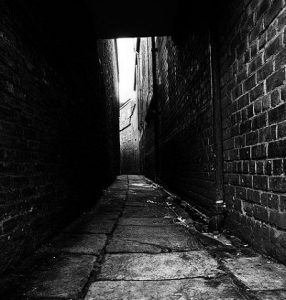
“I snapped. I flashed back to that day with my family and the poachers, and realized that in my disgust at what I’d seen, I’d made myself into a living recreation of those dead poachers. I’d made myself a victim. I realized at that moment that total non-violence is garbage. Taken to that extreme, it goes against every instinct, not only human instinct but that of all living things. I had always argued that that’s exactly the point, that by overcoming our instinctive aggression, we become better men and better Muslims. But Allah 
“I was overtaken by a rage like the fire of the sun. I came up off the ground like lightning, and I went through those men as if they were scarecrows. All the fighting skills of my childhood returned as if no time had passed. One of the muggers had a knife. I took it and cut his throat, and then I slashed the other one with a rapid series of cuts that left him dead where he stood. His blood sprayed on me from head to toe. The last one tried to draw an old-fashioned projectile gun. I turned it around and made him shoot himself in the mouth.”
Ghost Ship
“I wandered in a daze, like a ghost ship. Purposeless, haunted. I was picked up by a police patrol just because of how I looked, and soon they made the connection to the three murders. I was charged and dumped into Pudu Pudu prison. You have to understand, there are scores of men who are incarcerated because my family put them there. The name Abuzaid is reviled among convicts. It didn’t matter that I wasn’t personally involved in the family business. I was a walking target. Plus, I soon learned that the men I’d killed belonged to a gang called Orang Jahat, which – “
Rahman interrupted: “The gang was called Bad Guys?”
“Gangs always have stupid names. The Orang Jahat had its fingers in everything, including poaching. So again, they knew the name Abuzaid. The first day I was in, there were three attempts on my life. I killed two men and wounded four others badly. They put me in solitary confinement, no contact with the outside world. I was desperate to make a phone call, to call my wife and warn her. I wanted her to take Rooky and go to my family’s compound in the bush. They would be safe there. But no guard would even speak to me. Ten days in, the warden came to tell me that my house had been burned with my wife and child in it. They were dead. He gave me the news like he was telling me that my holoscreen was broken.”
Rahman was shocked. He managed to stutter, “I’m so sorry, akhi. May Allah 
A Choice With No Choice
“I would have killed the warden too but I was chained to the wall. They let me out of solitary after six months. I didn’t wait for the Orang Jahat to come after me. I broke off a piece of my bed frame so that it had a jagged edge. I killed two of the Jahat in the prison laundry, hid the bodies, killed four more where they were gathered in one cell, and seven on the weight pile out on the yard. The guards shot me down with a laser rifle. I also had five stab wounds, and one of my cheeks was bitten off, so that I had an open hole in my face.”
“I didn’t die. I was transferred to a high security UA hospital. While I was there, a UA colonel came to see me. He told me I would be charged with eighteen murders, and sent to Lubang, an underground prison where no one ever saw the sun. No one who was sent to Lubang, he said, was ever seen again. Or I could join the UA, where my talent for killing would be useful. I’d be given a commission as sergeant, and they’d regrow my cheek. It was a choice with no choice. That was twenty years ago. My service is up in five years. But unlike you, I don’t care. I have no home to return to, nowhere to go.”
Abuzaid’s rolling voice fell away and the man sat silently, leaning back against the wall, looking up at the ceiling as if wondering where the medibot had gone.
Request Transfers
Rahman swallowed and cleared his throat. Rock bottom, no kidding. It didn’t get any rockier. What did you say to a story like that? Again he fingered his knife sheath. Finally he said, “That doesn’t explain how you got so religious. Or why you say that ayah before every battle. Or what it means.”
Abuzaid stood. “Those are stories for another day. Tomorrow is the medal ceremony. Get some sleep.”
“Ammar, wait. I want you and the others to request transfers to another commander. It’s not safe to be with me anymore. I’ve been told that my next mission is practically a suicide mission.”
Abuzaid snorted. “What if it was me facing a suicide mission? Or Zhang? Would you abandon us?”
Rahman could say nothing. Abuzaid nodded, and walked out the door.
* * *
Next: All That Is In The Heavens, Part 19 – Bawah Dunia
Reader comments and constructive criticism are important to me, so please comment!
See the Story Index for Wael Abdelgawad’s other stories on this website.
Wael Abdelgawad’s novels – including Pieces of a Dream, The Repeaters and Zaid Karim Private Investigator – are available in ebook and print form on his author page at Amazon.com.
Keep supporting MuslimMatters for the sake of Allah
Alhamdulillah, we're at over 850 supporters. Help us get to 900 supporters this month. All it takes is a small gift from a reader like you to keep us going, for just $2 / month.
The Prophet (SAW) has taught us the best of deeds are those that done consistently, even if they are small. Click here to support MuslimMatters with a monthly donation of $2 per month. Set it and collect blessings from Allah (swt) for the khayr you're supporting without thinking about it.
Wael Abdelgawad's novels can be purchased at his author page at Amazon.com: Wael is an Egyptian-American living in California. He is the founder of several Islamic websites, including, Zawaj.com, IslamicAnswers.com and IslamicSunrays.com. He teaches martial arts, and loves Islamic books, science fiction, and ice cream. Learn more about him at WaelAbdelgawad.com. For a guide to all of Wael's online stories in chronological order, check out this handy Story Index.


I Can’t Stop Thinking About Someone | Night 10 with the Qur’an

Fifteen Years in the Shadows: The Strategic Brilliance of the Hijrah to Abyssinia

Ramadan As A Sanctuary For The Lonely Heart

Cultivating A Lifelong Habit Of Dua In Children

When to Walk Away from Toxic Friends | Night 9 with the Qur’an

30 Nights with the Qur’an: A Ramadan Series for Muslim Teens

[Podcast] Guardians of the Tradition: Muslim Women & Islamic Education | Anse Tamara Gray

Who Am I Really? What Surat Al-‘Asr Teaches Muslim Teens About Identity | Night 1 with the Qur’an

Ramadan In The Quiet Moments: The Spiritual Power Of What We Don’t Do

Where Does Your Dollar Go? – How We Can Avoid Another Beydoun Controversy

I Can’t Stop Thinking About Someone | Night 10 with the Qur’an

When to Walk Away from Toxic Friends | Night 9 with the Qur’an

What Islam Actually Says About NonMuslim Friends | Night 8 with the Qur’an

Week 1 in Review: Is Your Teen Actually Changing? | Night 7 with the Qur’an

Why Your Teen Wants to Change Their Muslim Name | Night 6 with the Qur’an
Trending
-
#Islam2 weeks ago
30 Nights with the Qur’an: A Ramadan Series for Muslim Teens
-
#Current Affairs1 month ago
[Podcast] Should Muslims Ally with Conservatives or Progressives? | Imam Dawud Walid
-
#Life1 month ago
[Podcast] The Parts of Being an Imam They Don’t Warn You About | Sh Mohammad Elshinawy
-
#Islam1 month ago
How to Make this Ramadan Epic | Shaykh Muhammad Alshareef
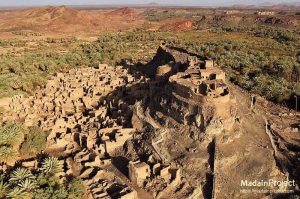










Wael Abdelgawad
December 2, 2022 at 12:51 AM
Behind the scenes: As much as I would like the key relationship in the book to be between Rahman and Zhang, it’s become clear that the key relationship is between Rahman and Abuzaid. I believe we’ll see this relationship continue to deepen and grow inshaAllah, and it might play an important role in the end.
The idea for the medibot came quite late as I was writing this chapter, but I’m glad it did, because I feel like it provides some needed humor, and also a glimpse at the past history between humans and AIs. I kind of like the little medibot, and I think Rahman might just take it along with him on the next space journey.
Abu taalib
December 2, 2022 at 11:14 PM
The medibot was a nice piece of the story. It was quite interesting the AI wars with human and…a glimpse into the future for us? And the rules now regarding AI.
Umm ismael
December 6, 2022 at 2:54 PM
asslam u alaikum akhi
may Allah Grant you shifa from covid. waiting eagerly for the next chapter
Wael Abdelgawad
December 8, 2022 at 2:55 PM
Umm Ismael, wa alaykum as-salam, ,thanks for the comment. This week is my Uber Tales column. Next week I will not publish a chapter as I will be traveling. So you’ll have to wait another two weeks. Sorry!
Abdullah Salman
December 20, 2022 at 4:09 AM
Salaam akhi, I’ve been inspired to write a cyberpunk story featuring a muslim operative fighting back against a global Islamaphobic regime. Any ideas as to how to weave Islamic principles into the story while not being preachy?
Wael Abdelgawad
December 30, 2022 at 11:05 AM
Abdullah, wa alaykum as-salam. Sorry for the delayed response. Sounds like a fascinating idea. I thnk the key is to imagine your characters as real people. I personally make detailed notes about my characters: their parents, upbringing, the foods they like, their patterns of speech, the clothes they wear, their hopes and fears, successes and failures. I don’t necessarily use all this info in the story. But it helps the character to come alive for me. Real people, real Muslims and believers, think about their faith. They are not perfect, but they have an idea of their own shortcomings. They want to grow closer to Allah, they want to learn more of their religion. If they are thoughtful, they think about these things and meditate on them. So you simply work that into the story, as part of the character’s life and thought processes, without hitting the reader over the head with it.